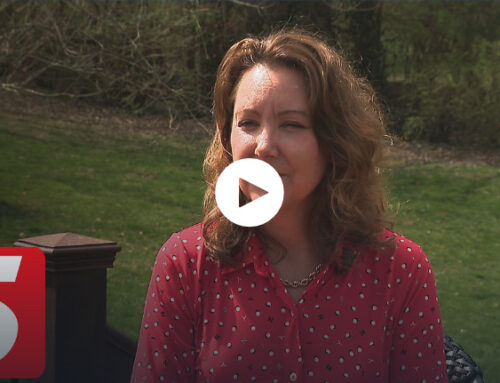A coalition of citizen, media and advocacy groups in Ohio are putting their support behind a so-called anti-SLAPP bill introduced in their state yesterday.
The bill is similar to one introduced in Tennessee, but taken off notice during the 2017 legislative session without discussion in committee or subcommittee.
The Ohio bill is modeled after Texas law, as was Tennessee’s.
Many people are not familiar with a SLAPP lawsuit. SLAPP stands for “strategic lawsuit against public participation” and is a moniker coined in the 1980s.
Here’s an entry describing SLAPP suits from The First Amendment Encyclopedia at MTSU and an excerpt:
A SLAPP suit, or strategic lawsuit against public participation, is a civil claim filed against an individual or an organization, arising out of that party’s speech or communication to government about an issue of public concern. At the heart of the SLAPP suit is the petition clause of the First Amendment.
A SLAPP suit may look like a civil lawsuit for defamation, nuisance, interference with contract, interference with economic advantage, or invasion of privacy, but its purpose is different. About this purpose, Judge J. Nicholas Colabella wrote in Gordon v. Marrone (N.Y . 1992), “Short of a gun to the head, a greater threat to First Amendment expression can scarcely be imagined.” Professors George W. Pring and Penelope Canan coined the term SLAPP suit in the 1980s after noting a surge in lawsuits filed to silence public criticism by citizens.
SLAPP suits arise when citizens erect signs on their own property, speak at public meetings, report violations of environmental laws, testify before Congress or state legislatures, or protest publicly, among many other similar acts, thereby prompting a party who claims to be aggrieved by such acts — often developers, merchants, and even public officials — to file suit.
The Ohio legislation is being called the “Ohio Citizen Participation Act.” It was introduced by State Sen. Matt Huffman, R-Lima, and has been described as an effort to protect Ohioans from frivolous lawsuits that chill their First Amendment rights of free speech.
“First Amendment rights are foundational to a free and functioning society,” Huffman was quoted as saying in The Times-Gazette in Hillsboro, Ohio. “This legislation takes important steps to ensure that citizens’ speech and expression can never be quashed by legal tricks and protracted courtroom battles.”
The coalition supporting the bill includes the Ohio News Media Association, Ohio Domestic Violence Network, Common Cause Ohio, Motion Picture Association of America, Ohio Association of Broadcasters, Ohio News Media Association, Yelp Inc. and the USA Today Ohio Network.
“This is not a liberal or conservative issue. All citizens have a stake in the right to freely express themselves,” said Dennis Hetzel, executive director of the Ohio News Media Association said in the Times-Gazette story. “Sen. Huffman’s bill does not expand libel and defamation laws. You’re still accountable for what you say and publish. This law will dispose of cases that defendants would eventually win if only they had the time and money to stay the course. These are lawsuits often designed to shut people up and send a warning to others not to speak out.”
Under the proposed legislation, a defendant can seek a “fast-track” process that can dispose of the case in a few months. Both sides can appeal rulings made under the act.
Read the proposed Ohio legislation here.
(As an aside, Dennis Hetzel will be in Nashville Oct. 13-14, presenting research on the Ohio Supreme Court as part of the National Freedom of Information Coalition Summit. You can register for that conference here.)





